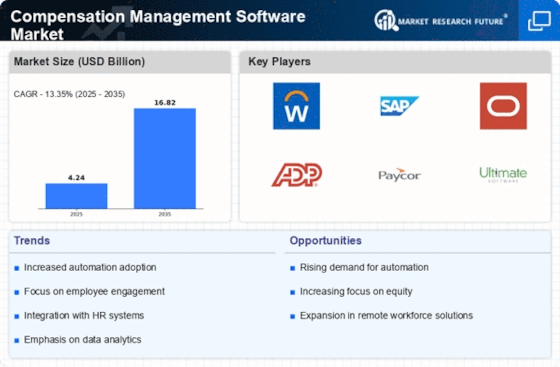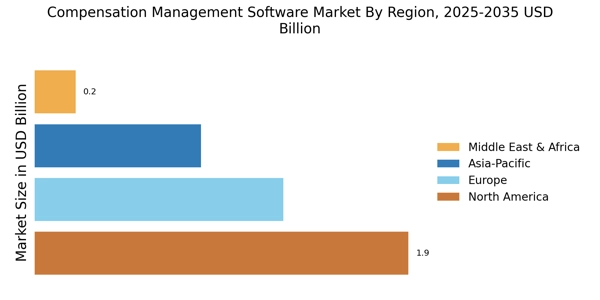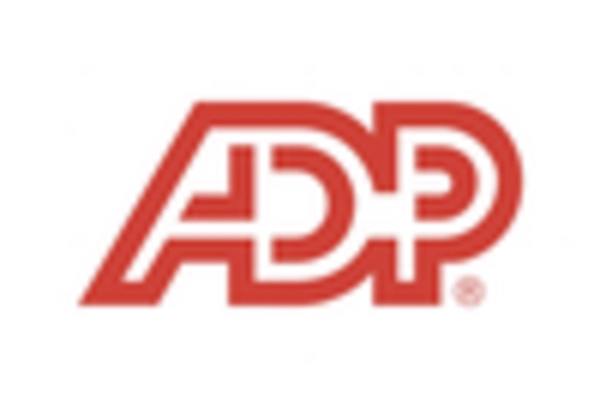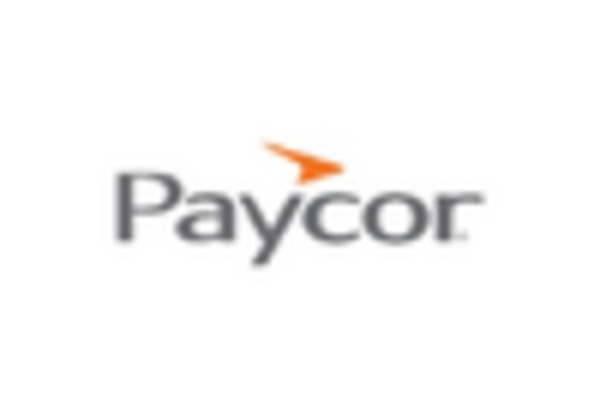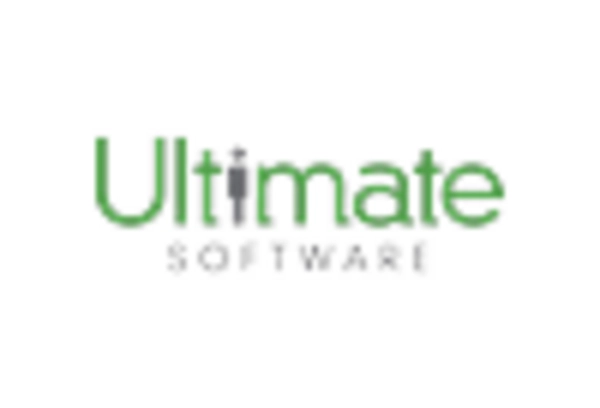Regulatory Compliance and Reporting Requirements
The Compensation Management Software Market is significantly influenced by the need for compliance with various regulatory frameworks. Organizations are required to adhere to laws and regulations regarding pay equity, minimum wage, and reporting standards. For instance, the implementation of the Equal Pay Act and similar regulations has compelled companies to ensure that their compensation practices are compliant. This has led to an increased adoption of compensation management software that assists in tracking and reporting compensation data accurately. The market is projected to expand as businesses seek solutions that not only streamline compliance processes but also mitigate the risk of legal repercussions associated with non-compliance.
Shift Towards Performance-Based Compensation Models
The Compensation Management Software Market is adapting to a growing preference for performance-based compensation models. Organizations are increasingly linking pay to performance metrics to incentivize productivity and align employee goals with business objectives. This shift is prompting companies to seek compensation management solutions that can effectively manage and track performance-related pay. The market is likely to see an uptick in demand for software that supports the design and implementation of performance-based compensation plans, as businesses aim to foster a culture of accountability and reward high achievers. This trend may lead to a more dynamic and responsive Compensation Management Software Market.
Rising Demand for Transparent Compensation Practices
The Compensation Management Software Market is experiencing a notable shift towards transparency in compensation practices. Organizations are increasingly recognizing the importance of clear and equitable pay structures to attract and retain talent. According to recent data, approximately 70% of employees express a desire for transparency in their compensation packages. This trend is driving companies to adopt compensation management software that provides insights into pay equity and helps in establishing fair pay practices. As a result, the demand for solutions that facilitate transparent compensation strategies is likely to grow, pushing the Compensation Management Software Market towards innovative offerings that enhance visibility and trust in pay structures.
Integration of Advanced Analytics and Reporting Tools
The Compensation Management Software Market is witnessing a surge in the integration of advanced analytics and reporting tools. Organizations are increasingly leveraging data analytics to inform their compensation strategies, enabling them to make data-driven decisions. The ability to analyze compensation data in real-time allows companies to identify trends, assess pay equity, and optimize their compensation structures. As a result, the demand for software solutions that offer robust analytics capabilities is on the rise. Market data suggests that organizations utilizing advanced analytics in their compensation management processes can achieve up to a 15% improvement in employee satisfaction, further driving the growth of the Compensation Management Software Market.
Emphasis on Employee Retention and Engagement Strategies
The Compensation Management Software Market is being driven by a heightened focus on employee retention and engagement strategies. Organizations are increasingly aware that competitive compensation packages play a crucial role in retaining top talent. As a result, companies are investing in compensation management software that enables them to design attractive compensation packages tailored to employee needs. Market analysis indicates that organizations with effective compensation strategies can reduce turnover rates by up to 25%. This realization is likely to propel the demand for innovative compensation management solutions that enhance employee engagement and satisfaction, thereby shaping the future of the Compensation Management Software Market.


